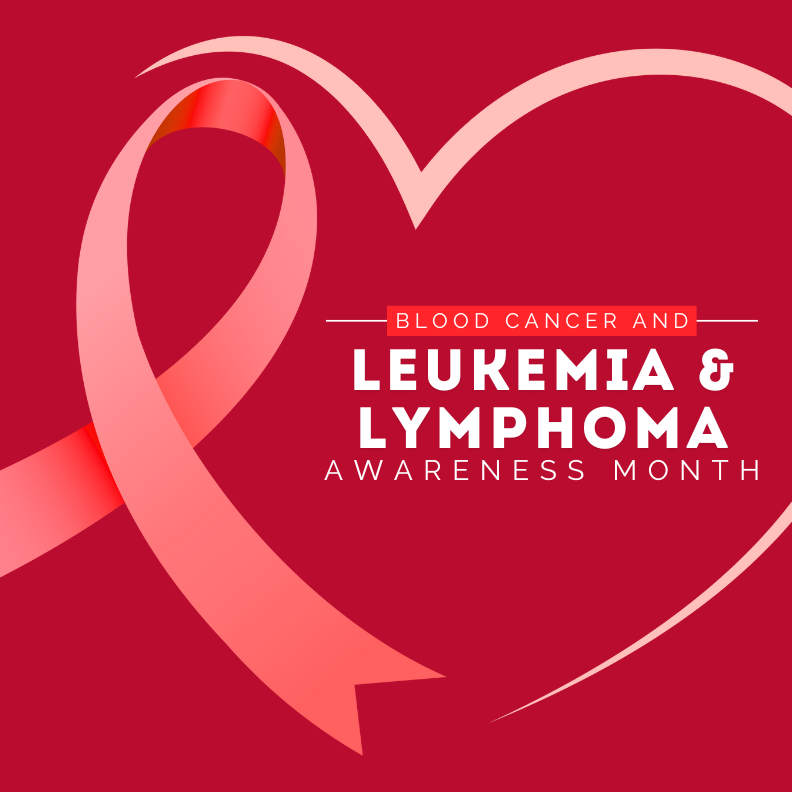September is Blood Cancer Awareness month, an opportunity to spotlight the broad category of diseases that include leukemia, lymphoma, plasma cell neoplasms, myelodysplastic syndromes, and myeloproliferative neoplasms. These diseases disrupt both blood cell populations and the processes underlying blood formation, creating unique challenges in how we communicate with patients and the public about their diagnosis and treatment.
The Leukemia & Lymphoma Society (LLS) recently announced it has changed its name to Blood Cancer United to address this communication challenge on a macro level, spreading the message about the diversity of blood cancers to a global audience. In changing its name, the organization aims to expand awareness of diseases beyond leukemia and lymphoma. In the press release announcing this update and the accompanying global awareness campaign, Gwen Nichols, MD, chief medical officer of Blood Cancer United, said, “This is more than a name change; it’s a call to action that’s more important than ever to ensure that every patient is seen, supported, and given a chance at life.”
The Association of Cancer Care Centers (ACCC) is addressing this challenge of communicating about blood cancers by focusing on the patient–provider relationship. In recent years, ACCC has developed several resources that empower providers to better communicate with their patients about blood cancers and their treatment options. Below is a sample of resources, from blogs to podcasts and more, created to address communication challenges in the treatment of blood cancers.
Blog: Understanding Patient and Caregiver Concerns During First-Line CLL Treatment Decisions
In 2022, ACCC conducted a survey of patients and providers about communication, resources, and support provided upon diagnosis of chronic lymphocytic leukemia (CLL). CLL is a chronic disease that is managed over many years or a lifetime. This runs counter to most patients’ perceptions of the cancer journey, which typically involves treatment and remission. While many providers view CLL as a “good” cancer because of the multiple effective treatment options available, its chronic nature can create confusion and anxiety for patients who may struggle to reconcile this diagnosis with their expectations of cancer care.
The survey results showed significant gaps between the information providers reported giving and the information patients reported receiving. Of patients surveyed, only 54% said all their questions about diagnosis and treatment were addressed. A recent ACCCBuzz Blog post dives into the results from this survey, potential causes of communication gaps, and how to better educate patients and their caregivers on CLL.
Video Podcast: Critical Conversation Strategies for Patients With AML
Acute myeloid leukemia (AML) is an uncontrolled growth of abnormal white blood cells and is characterized by sometimes life-threatening complications. It is the most commonly diagnosed blood cancer in adults and is associated with significant morbidity and mortality, particularly among older adults. Traditionally, treatment options were limited and often too intense for many patients to tolerate. However, the treatment landscape has progressed significantly in recent years, with the approval of targeted therapies, novel combinations, and less intensive regimens that can be better tailored to a patient’s age, comorbidities, and disease biology. These advances are reshaping the standard of care and offering new hope for patients who previously had few options.
With so many emerging options for care, it is particularly important for providers to be aware of a patient’s goals and the risk factors that may impact their response to treatment. In this video podcast, CANCER BUZZ spoke with Melissa Kah Poh Loh, MBBCh, BAO, assistant professor of geriatric hematology and oncology at the Wilmot Cancer Institute, about when and how to approach these conversations with patients to facilitate shared decision-making.
Infographic: DLBCL Communication Roadmap
Diffuse large B-cell lymphoma (DLBCL) is a subtype of non-Hodgkin lymphoma that affects B cells, a type of white blood cell. Although the disease is treatable and many patients are cured with first-line treatment, DLBCL is aggressive and has a high rate of relapse. The cancer care team is tasked with communicating all potential outcomes and preparing patients for the possibility of recurrence.
ACCC created a communication roadmap to guide providers through the most important topics at each stage of the treatment process, including diagnosis, relapse, survivorship, and end-of-life care. This tool was developed using focus group discussions with members of the care team, patients, and caregivers to identify the greatest communication challenges. While this roadmap serves as a quick reference guide, ACCC also created a larger and more comprehensive resource titled “Diffuse Large B-cell Lymphoma: Effective Practices for Meaningful Care Conversations in a Changing Landscape.”
Centering the Patient Experience
As important as it is for the care team to be knowledgeable about the diseases they are treating, it is equally important for patients to understand their diagnosis and treatment options. Clear lines of communication enable shared decision-making and outcomes that align with the wants and needs of individual patients.
These highlighted resources represent a small fraction of ACCC’s portfolio of provider education materials designed to improve care and communication around blood cancers. For a complete list, visit the Hematologic Malignancies Resources page.

